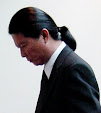Tang Dynasty - Art & Poetry.
During the Golden Age of China, poets and poetry was highly revered amongst royalty, court officials, concubines and commoners. Not only do they appreciate poetry, almost everyone became poets themselves, writing and reciting about life, unfolding in their time. Records revealed that, thousands of poets had written thousands upon thousands of poetry. Thanks to the Tang court and others who came after, like the Song, Ming, and Ching Emperors, who made it mandatory to archiving volumes of Tang poetry.
*According to the pre-eminent collection of Tang poetry entitled Complete Tang Poems( Quan Tangshi in Chinese), there were around 49,000 surviving poems divided into 900 volumes and written by a total of 2,200 authors.
They say; Art mirrors Life. And life during the Tang period in China was blossoming.
Almost all aspects of life were going gloriously well. This was mostly due to the good governance of the Li Family who ruled during the Tang Dynasty (618-907 AD). Li Yuan, the founder was a garrison commander in Taiyuan when revolt against the Sui Dynasty broke out in 613. He marched to the Sui capital, forced the last Sui emperor to abdicate and founded the Tang Dynasty. From here onwards, it took five years of campaigning by the imperial princes Li Jiancheng and Li Shimin before the country was reunified.
Here are some notable achievements during the Tang Dynasty aka China's Golden Era;
• Commerce and Economy - Trade flourished within inter-cities as well as internationally. Merchants flocked to China via the Silk Road opening up trade routes and exchanges of knowledge and culture between East and West flourished. Chang'An, the capital was the largest city in the world rivalling Rome which was the Western equivalent at that time. China was the most powerful and the most prosperous nation on earth.
• Good Governance - Just like all dynasties, it was ruled by a powerful emperor who instituted, modified and carried out reforms within a legal system with laws that benefitted everyone.
The government of the Tang Dynasty had three basic departments that came up with laws and policies. The framework of rules and laws were all administered by a group that was called the Six Ministries. These ministries were;
1-military,
2-personnel administration,
3-finance,
4-justice,
5-rites
6-the public works.
This system worked very well and it actually outlived the Tang Dynasty, which collapsed in the year 907. The government system was actually modelled upon which every dynasty based its own systems. This was also widely used by other kingdoms and countries, including Korea and Vietnam.
• Art and Culture - Creativity in the form of culture, art, painting and poetry were heavily promoted during this time. Notably Tang poetry which stood to define Chinese literary culture to this day.
Some characteristics of Tang poetry.
Tang poetry was strongly connected to religion and had a major impact on the Song Dynasty poetry and even on world literature. The most popular Tang poetry styles included ”jintishi,” used by poets such as Cui Hao and Wang Wei and ”gushi,” used by Li Bai.
The former poetical style is characterized by seven Chinese characters per line, an antithesis between the second and the third couplets, and eight-line stanzas. Poetry contests were very popular and Tang poems were often recited in Classical Chinese, which was spoken during that era.
At the end of it, my take is that for any dynasty, nation or society to prosper and thrive, it must nurture and promote their art and culture. For without them, people are merely roaming the earth in pursuit of material well being. Material well being cannot be sustained with just hard power alone. Soft power is as important if not more powerful, as has been demonstrated by the soft, beautiful and irresistible Yang GuiFei.








No comments:
Post a Comment